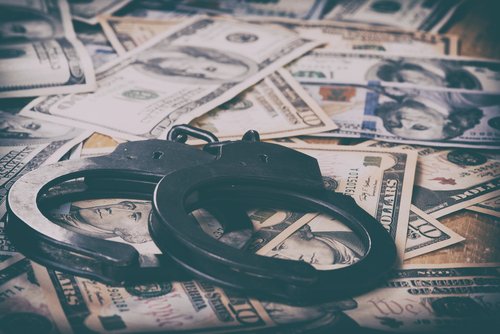Illegal activities in cryptocurrency? ??
 Illegal transaction ratios are dwindling in the cryptocurrency market according to a Bloomberg report. In an interview with Bloomberg, Lilita Infante at the U.S. Drug Enforcement Administration [DEA] said that users still use Bitcoin for the majority their illicit transactions, however, the ratio of the crypto coins used for illegal transactions have reduced. This implies that speculators are gradually catching up in the crypto market to eventually take over the market.
Illegal transaction ratios are dwindling in the cryptocurrency market according to a Bloomberg report. In an interview with Bloomberg, Lilita Infante at the U.S. Drug Enforcement Administration [DEA] said that users still use Bitcoin for the majority their illicit transactions, however, the ratio of the crypto coins used for illegal transactions have reduced. This implies that speculators are gradually catching up in the crypto market to eventually take over the market.
According to Infante, 90% of the transactions in the crypto market were illegal. Illegal transactions have been on a rise since 2013 in comparison to investor activity. She said that the ratio of legal transactions to illegal transactions has changed with illegal transactions shrinking by about 10%. This might not be considered as a possible slackening in unlawful transactions.
“The volume has grown tremendously, the amount of transactions and the dollar value has grown tremendously over the years in criminal activity, but the ratio has decreased,’’ she said during the interview. “The majority of transactions are used for price speculation.’’
Infante is a DEA Special Agent who is a part of the 10-person Cyber Investigative Task Force. The team focuses on dark web and virtual-currency investigations and helps other Department of Justice units including the Federal Bureau of Investigation and the Bureau of Alcohol, Tobacco, Firearms, and Explosives.
See also: Bitcoin mining giant Bitmain to invest in $500M cryptocurrency mining farm in Texas
Infante’s findings show that criminal rackets use Bitcoin for its actual features. Factors like anonymity, decentralized system, no middlemen are some attractive features which are eyed by the offenders. Repeat offenses in the cryptocurrency market including the recent mining malware attack faced by Monero [XMR] casts a shadow on these findings.
The hustlers also consider other cryptocurrencies apart from Bitcoin but, Bitcoin eats up a major portion of these extralegal transactions. Many of coins including Monero and EOS provide users with the facility of anonymous transactions and does it better than Bitcoin. However, these coins have liquidity concerns. Infant said that they have methods of tracking even the untraceable coins. Traffickers and money launderers trade Bitcoin for fiat currencies in peer-to-peer and over the counter exchanges, and they also go through major U.S.-based exchanges.
Infante goes on to say that a lot of unlawful transactions can be anticipated in the future. “The blockchain actually gives us a lot of tools to be able to identify people,’’. “I actually want them to keep using them,’’ she said